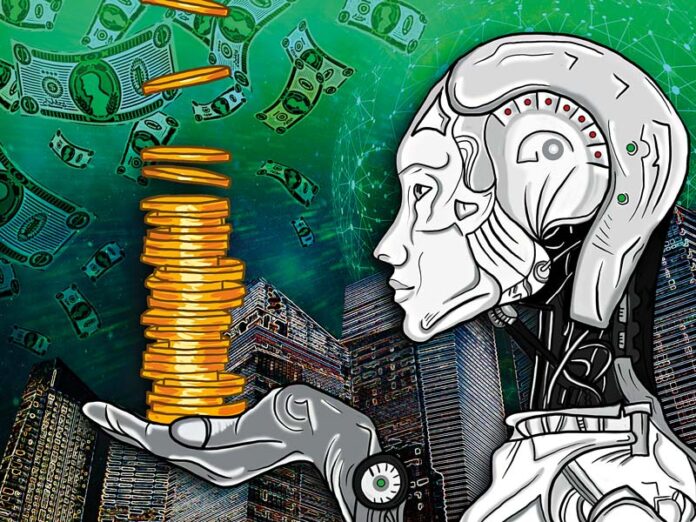Have you ever wondered what Artificial Intelligence (AI) really is? From facial recognition tech in smartphones to artificial agents beating world champions in complex board games, AI has come a long way since its conception. The potential of artificial intelligence technology can no longer be ignored – almost every company is starting to realize the benefits of adopting an AI solution, and it has become an integral part of our day-to-day lives.
This article will explore artificial intelligence for banking; from their history and evolution to current uses and developments. It will provide insight into what we can realistically expect from AI in the near future, and how it will continue to shape businesses and society as a whole.
Benefits of Applying AI to the Banking Industry
Artificial Intelligence (AI) is rapidly transforming the banking industry. By applying AI to the banking industry, banks and financial institutions are able to make well-informed decisions, minimize costs and increase efficiency. This article will look at some of the benefits that AI can bring to banking.

-
Faster Decision Making
With the help of AI, a bank can quickly understand consumers’ needs and respond to their queries in an effective manner. By leveraging AI algorithms and predictive analysis, banks can quickly access large amounts of data and identify customer trends without any delays. Bankers will have more time to focus on other areas while automated systems take care of customer operations.
-
Improved Customer Service
By using AI-powered chatbots, banks can provide its customers with timely support 24x7x365. These bots are programmed to collect data from customers in order to give accurate responses according to their preferences and requirements. Chatbots are not only fast but also cost effective since they allow for live customer support without having the need for hiring additional staff or increasing overhead costs.
-
Personalized Banking Experiences
AI can provide personalized banking experiences through text analytics and machine learning models; this allows banks to better understand their customers by parsing through customer feedback as well as analyzing customers spending patterns and payment history. Banks are then able to suggest products or services that would best suit each individual user based on these criteria which leads to better loyalty with existing customers as well as attracting new ones due its experience tailored towards each individual person.
-
Reduced Fraud Risks
AI helps reduce fraud risks by spotting patterns in fraudulent activities; this helps banks detect unauthorized transactions quicker and allows them take timely action before it’s too late preventing potential losses or dangers associated with fraudsters. Banks also have access to powerful tools such as card usage monitoring, identity confirmation systems as well biometrics authentication mechanisms due integration with mobile technologies through apps or wallets like Apple Pay which utilizes facial recognition technology for added security when making payments online or in stores.

How AI is Used in Banking Today
The banking and finance industry has always been a data-heavy sector, and advances in technology have allowed for increasingly digital solutions for meeting customer needs. As artificial intelligence (AI) becomes more widely used, banks are finding ways to use it to their advantage—leading to workflows that are smarter, more efficient, and more personalized. Here’s how AI is used in the banking sector today:
-
Smart Chatbots
Chatbots powered by artificial intelligence can provide customers with 24/7 support and assistance – and they’re becoming increasingly sophisticated. AI-based chatbots can quickly glean vast amounts of information about clients’ preferences and personalize their experience. The data gathered is then used to develop improved user experiences over time – this allows banks to build closer relationships with their customers while still providing a convenient service.
-
AI Fraud Detection
One of the biggest issues faced by banks today is fraud – so solutions like AI-based fraud detection systems are invaluable. Banks can use AI to detect suspicious activities or transactions quickly and accurately without having to involve humans – this ensures that fraudulent activities are quickly identified and reported as soon as possible. Additionally, these systems can be trained using historical data to better identify risky transactions in the future – preventing potential losses for the bank.
-
Robo-Advisors
Instead of relying on human advisors, some banks allow customers to receive advice from AI algorithm software, known as “robo-advisors.” These works can tell more about us as a bank. These robo-advisors help customers make decisions about investments using algorithms tailored to the customer’s specific goals and financial situation based on gathered data points. This makes investment advice both easier and more accessible – saving time for both the customer and the bank alike.

Challenges and Limitations of AI in Banking
AI is not a silver bullet. It’s not a substitute for human decision-making or judgment, and it can’t replace creativity. AI also has its limitations, including the possibility of bias and manipulation.
In addition, there are other challenges to overcome when implementing an AI solution in your organization:
- Training data must be accurate and representative of real-world scenarios
- There must be enough processing power available on the backend (this varies depending on how complex your machine learning model is)
- A commitment to keep the system updated and maintained over time
- There must be a skilled team of data scientists, engineers, and analysts available to maintain the system
- A process for identifying and addressing bugs in the system
- The system must be designed to be adaptable to changes in the business environment AI is not a silver bullet, but it can lead to significant benefits for businesses.
The underlying technology behind AI is already being used in many industries, including healthcare, manufacturing, finance and insurance — and that list continues to grow with every passing day.

Conclusion
AI is not a panacea for all of the challenges facing banks and other financial institutions. It’s still a relatively new technology, and it will take time before we see it deployed in widespread use cases. However, AI can be a powerful tool for automating repetitive tasks and freeing up human labor so that they can focus on more complex problems–which is exactly what banks need right now!









